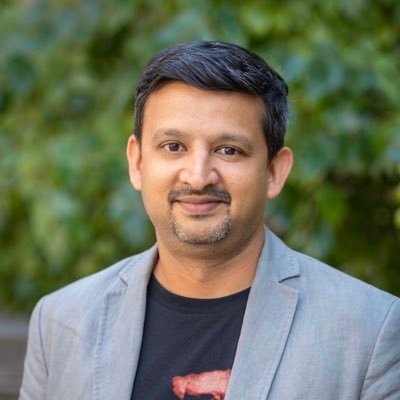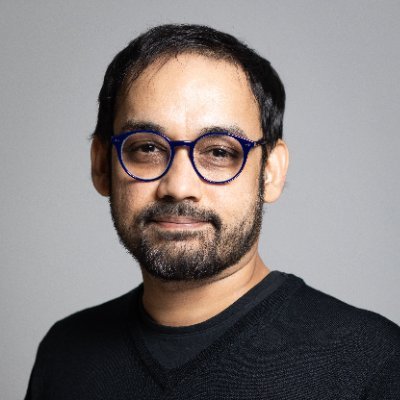
Aswin Punathambekar
@aswinp
Followers
3K
Following
11K
Media
184
Statuses
5K
Professor of Communication @AnnenbergPenn and Director of @AnnenbergCARGC; @PeabodyAwards Juror; Co-Editor @MCSjournal.
Philadelphia, PA
Joined June 2007
Proud to have been part of the team that computationally analyzed the New York Times' biased coverage of Israel and Palestine. This is part of a broader effort by Writers Against the War On Gaza @wawog_now, who released today a tour-de-force exposé of NYT: https://t.co/rQZn3UYj2P
197
5K
10K
@Yangguobin @parodevi @ShaohuaGuo @JingWang0815 @kevindriscoll @SandeepMertia And wow, @florencemadenga's take on political parody opens up a terrain of intertextuality that, in turn, suggests user journeys (that @parodevi brought up) involving 'textual' squatting & poaching (a la Henry Jenkins on early fan cultures)!
0
2
4
@Yangguobin @parodevi @ShaohuaGuo @JingWang0815 @kevindriscoll @SandeepMertia's take on India's software tech parks situates the 90s as a vital bridge that could hold in place, briefly, a link between statist development & neoliberal capture. A temporal bridge.
1
0
3
@Yangguobin @parodevi @ShaohuaGuo @JingWang0815 @kevindriscoll is spot on in asking for trans-regional histories of email as a crucial way to explore 90s media histories, especially in relation to print + televisual mediations of emergent internet cultures.
1
0
3
@Yangguobin @parodevi @ShaohuaGuo @JingWang0815 And it's terrific to now have Aniko Imre draw our attention to the exceptional nature of the 90s in Hungary, and open with an image that speaks to the structuring, world-historical force of desires (for TVs and PCs, for e.g.!).
1
0
4
@Yangguobin @parodevi @ShaohuaGuo So nice to see many of the themes and questions @parodevi & @JingWang0815 raised last night taken up this morning by several speakers!
1
1
5
@Yangguobin @parodevi @ShaohuaGuo follows up w/ a focus on literary culture in 90s Chinese internet (Wenxuexity/Literature City), situated within an emergent 'network of visibility'. Check out her book, "The Evolution of the Chinese Internet" https://t.co/0WwXfjwAFw).
1
0
3
@Yangguobin @Yangguobin pushes back against notion that the structuring logic of the internet is a database; he would argue that it is, instead, narrativity. We are online, together, because we tell stories. I suspect @parodevi would agree!
1
1
4
@Yangguobin follows Mallapragada to think through a shift from revolutionary/heroic/epic style to a new style marked by playfulness/humor/parody in the 1990s, esp. via BBS forums, and remains dominant through the present in China.
1
1
3
Mallapragada's work is another reminder of how crucial financial services were to articulating 90s internet cultures, esp. in diasporic contexts. We all need to read Geeta Patel: "Risky Subjects: Insurance, Sexuality, and Capital"
1
0
3
Again, Mallapragada's close reading of 'India Abroad' and 'Rediff' links back to Geeta Patel's insistence on working w/ analog remnants.
1
1
2
Mallapragada takes us back to the 'homepage nationalisms' of the 'world white web' as a way to bring q'ns of 90s/diasporic networks into focus, and to work w/ the polysemy of the word 'pravasi' (migrant & traveler among others).
1
1
2
@aoir @msteinbrg and if I didn't say anything about @says_hatim's talk on 'network formalism,' it's b'cos I could not bring myself to tweet while listening to one of the most generative critiques of 90s media theory that was in lock-step w/ the double-speak of liberal thought + militarism.
1
1
5
@aoir @msteinbrg turns our attention to Japanese convenience stores of the 90s to work through a history of state-market relations as they shape internet imaginaries (across sectors incl., crucially, banking and finance).
2
0
4

